How many can you get right? No peeking at a dictionary for this surprisingly tricky 4th grade spelling words quiz.
Can You Pass This Quiz of 4th Grade Spelling Words?
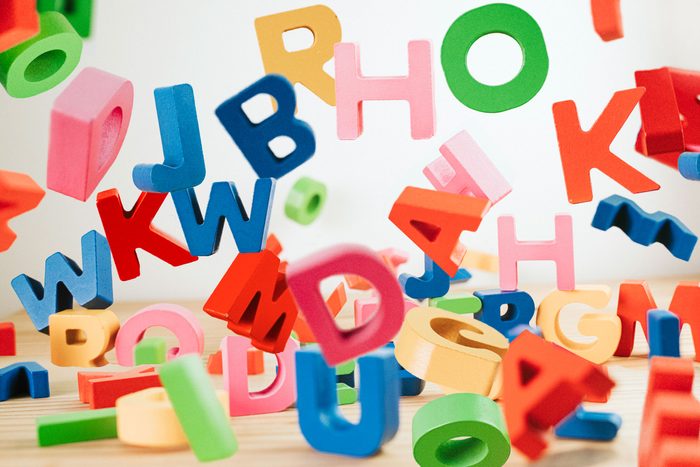
Test your skills with this 4th grade spelling words quiz
Remember those 4th grade spelling words quizzes we took in elementary school? They were like mini brain games that kept our spelling skills sharp and enhanced our budding vocabularies. We’d wrack our brains to remember the words, using some of the most common letters in English to spell those challenging words in hopes of acing the quiz and, of course, getting that coveted gold star. Simpler times, simpler words.
But make no mistake—some of those 4th grade spelling words were doozies. In fact, they may still trip you up. Test your skills by taking this spelling test for 4th grade students. How many can you get right? No Googling!
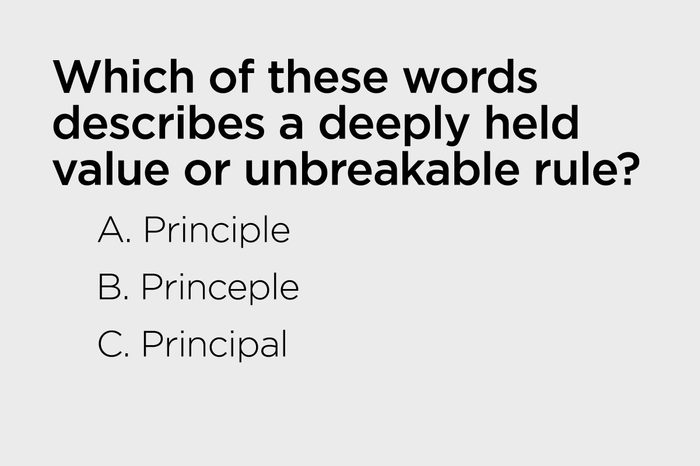
Which of these words describes a deeply held value or unbreakable rule?
A. Principle
B. Princeple
C. Principal
(P.S. Don’t forget to check out this list of commonly misspelled words.)
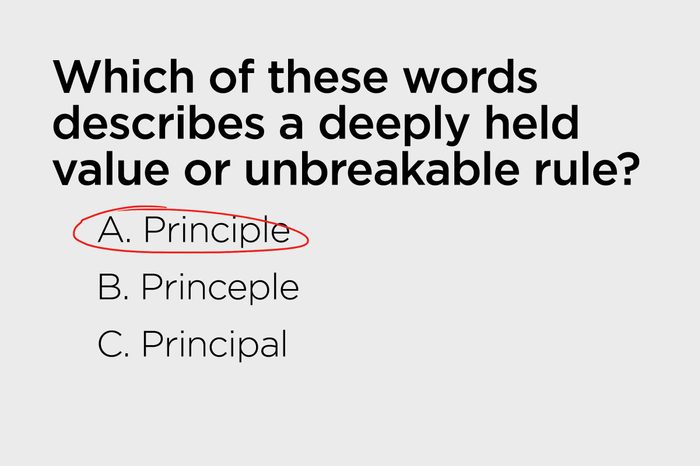
A. Principle
For example, it probably goes against your “principles” to cheat on a test of 4th grade spelling words—and it just might get you sent to the “principal’s” office. If you really want to challenge your spelling skills, take a look at the hardest winning National Spelling Bee words.
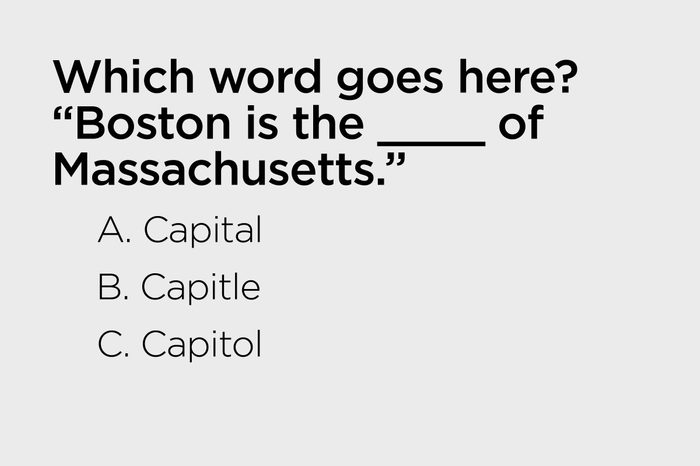
Which word goes here? “Boston is the ____ of Massachusetts.”
A. Capital
B. Capitle
C. Capitol
By the way—these are some confusing words and phrases you may be using all wrong.
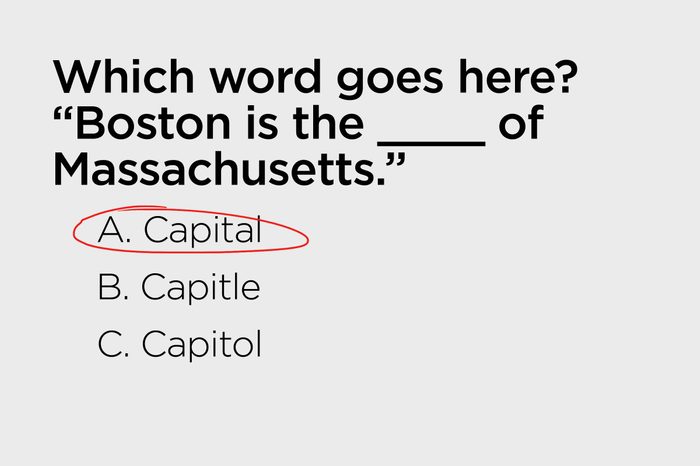
A. Capital
States have “capital” cities, and countries have “capitals,” but legislators meet in “capitol” buildings. We totally see why this one trips people up.
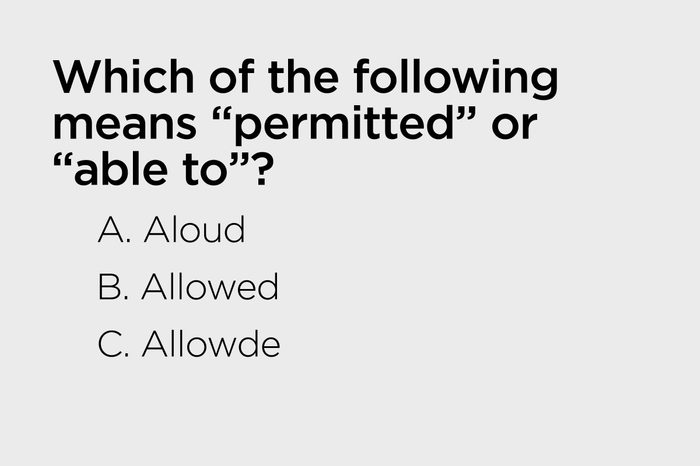
Which of the following means “permitted” or “able to”?
A. Aloud
B. Allowed
C. Allowde
Once you’re done with this quiz, guess if these funny words are real or made up.
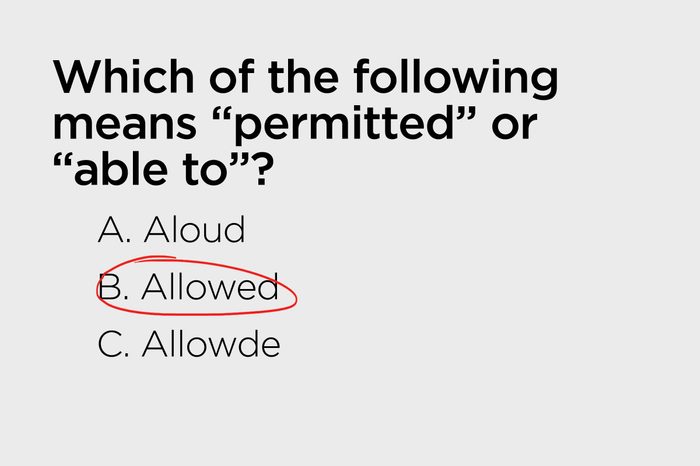
B. Allowed
It might sound identical to “allowed,” but “aloud” actually means the same thing as “out loud.” For example, “I’m not allowed to play my music aloud when my baby brother is sleeping, so I use headphones.” Just a few letters can make a big difference. Try naming these states without using vowels!
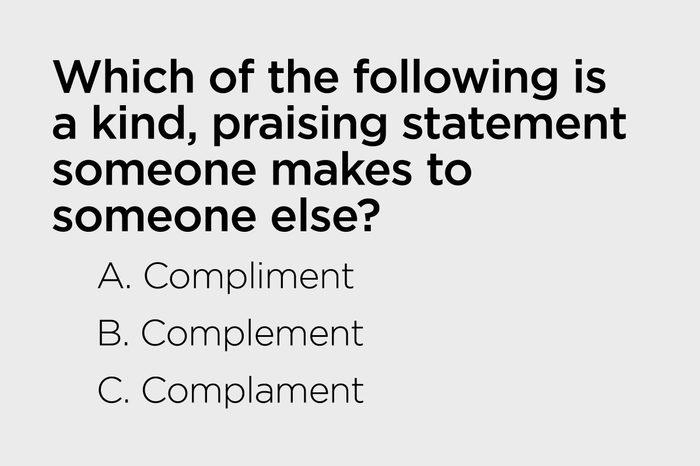
Which of the following is a kind, praising statement someone makes to someone else?
A. Compliment
B. Complement
C. Complament
Another question to ponder: Is it cancelled or canceled?
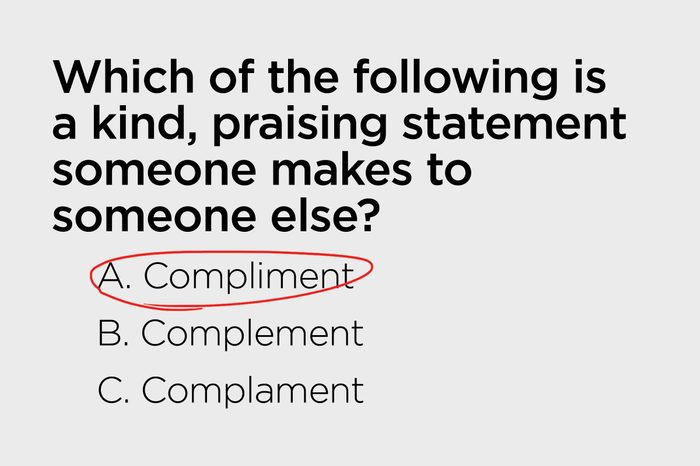
A. Compliment
A “complement” is something that completes or increases the value of something else. “Complament” isn’t a word at all, but you might think it is because of the way most people pronounce the word. (Similar spelling mistakes are common—for example, this is the difference between travelled and traveled.)
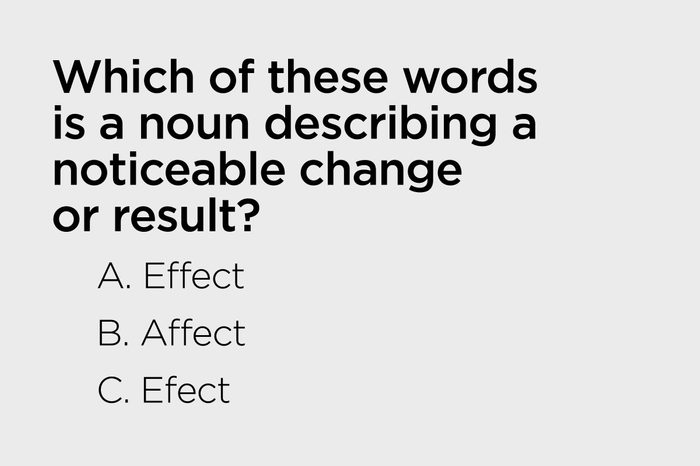
Which of these words is a noun describing a noticeable change or result?
A. Effect
B. Affect
C. Efect
Remember to take this state capitals quiz once you’re finished with this 4th grade spelling words test.
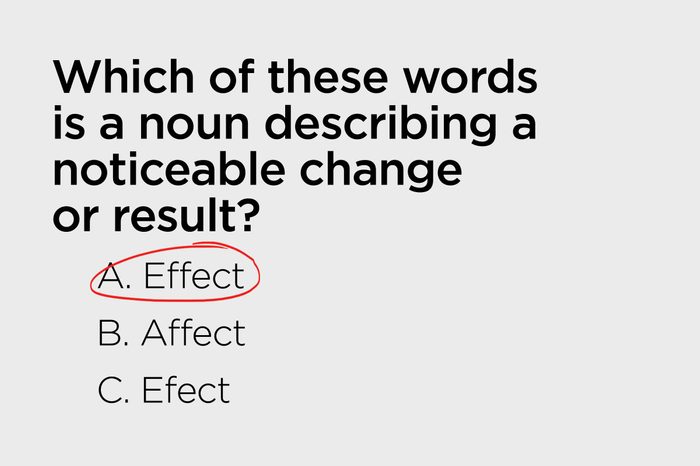
A. Effect
“Affect” is a verb meaning to produce a change or—you guessed it—an effect. To make matters more confusing, “affect” can also be a noun meaning a subtle display of emotion. These are some of the most confusing grammar rules in the world.
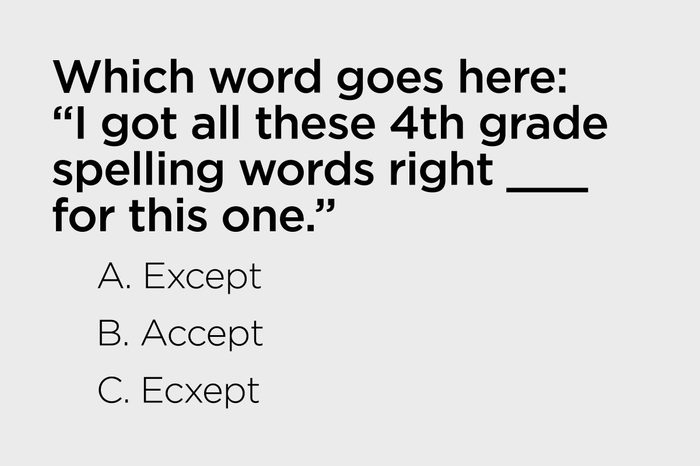
Which word goes here: “I got all these 4th grade spelling words right ___ for this one.”
A. Except
B. Accept
C. Ecxept
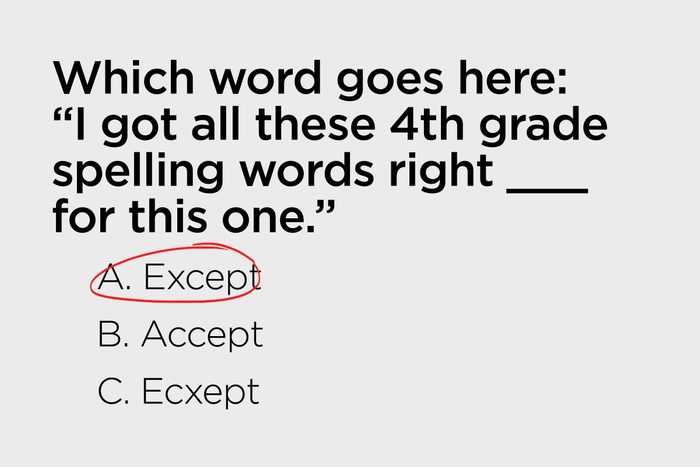
A. Except
“Accept” is a verb meaning “to allow or agree to,” while “except” is a preposition meaning “with the exclusion of.” In that way, their meanings are somewhat opposite! When you’re trying to figure out which to use, ask yourself if you’re “allowing” or “excluding.” Follow these grammar rules that make you sound smarter.
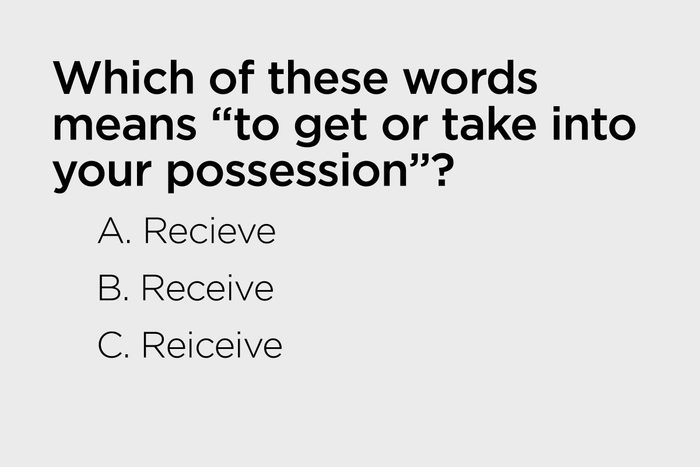
Which of these words means “to get or take into your possession”?
A. Recieve
B. Receive
C. Reiceive
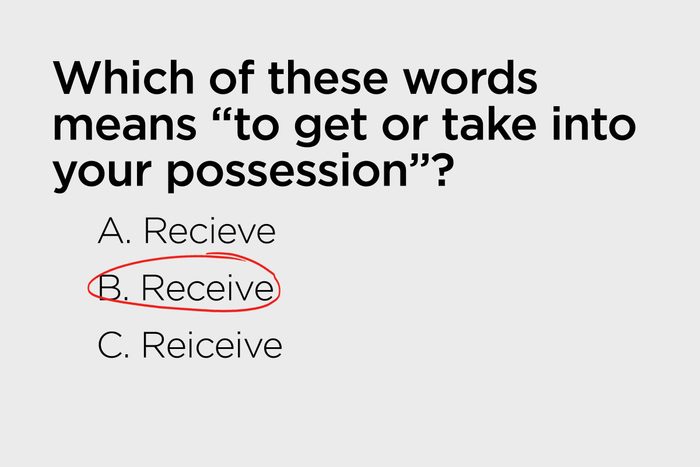
B. Receive
This is one of the words that old “I before E except after C” rule was created for. If you’re enjoying this 4th grade spelling words quiz, try this high school English quiz.
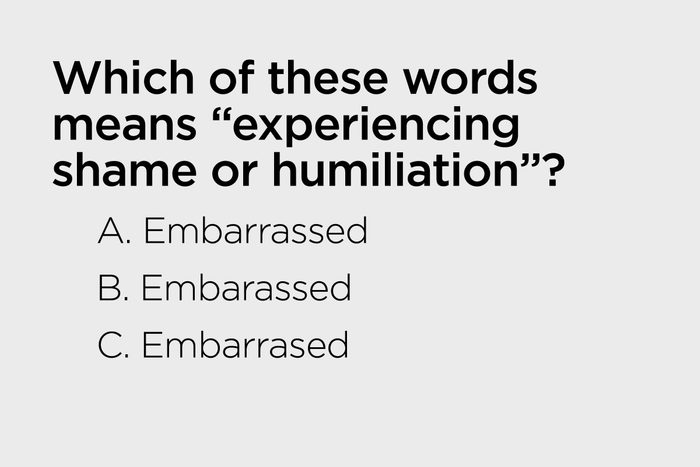
Which of these words means “experiencing shame or humiliation”?
A. Embarrassed
B. Embarassed
C. Embarrased
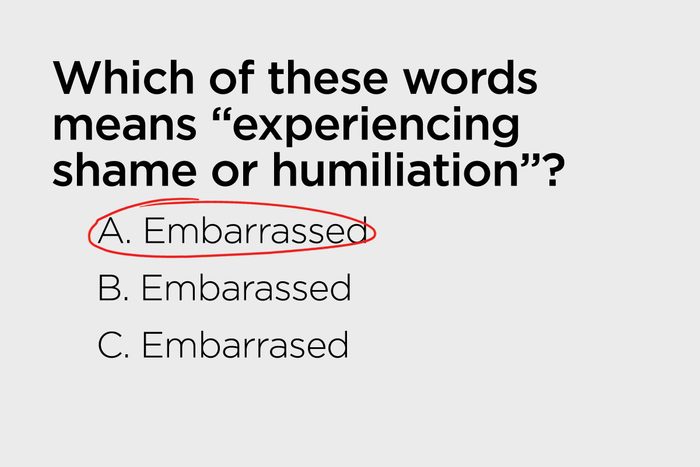
A. Embarrassed
Here’s a rule for remembering how to spell “embarrassed”: When in doubt, use double letters!
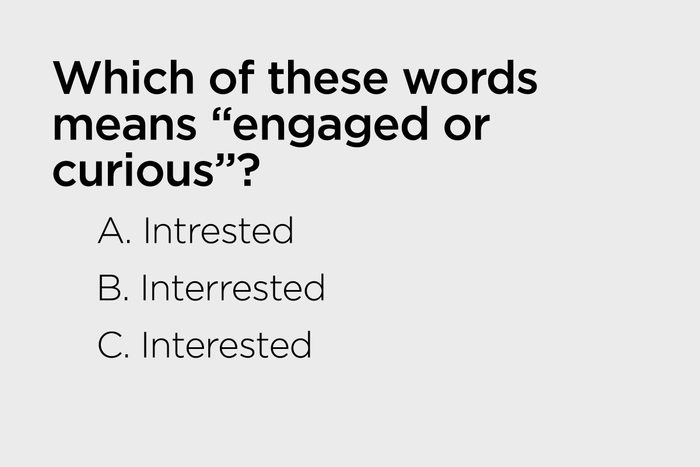
Which of these words means “engaged or curious”?
A. Intrested
B. Interrested
C. Interested
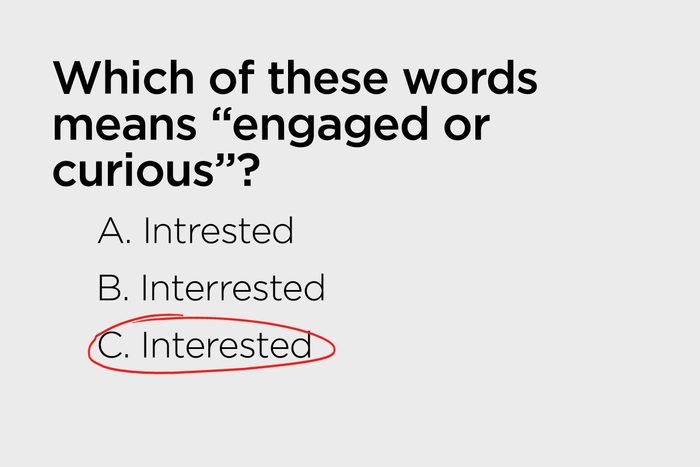
C. Interested
Interesting, right? If you’re interested in more word games, check out our Word Power quizzes—word nerds will love them!
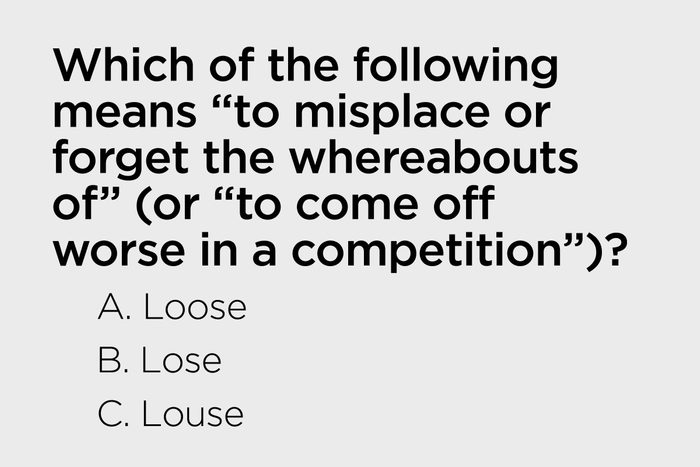
Which of the following means “to misplace or forget the whereabouts of” (or “to come off worse in a competition”)?
A. Loose
B. Lose
C. Louse
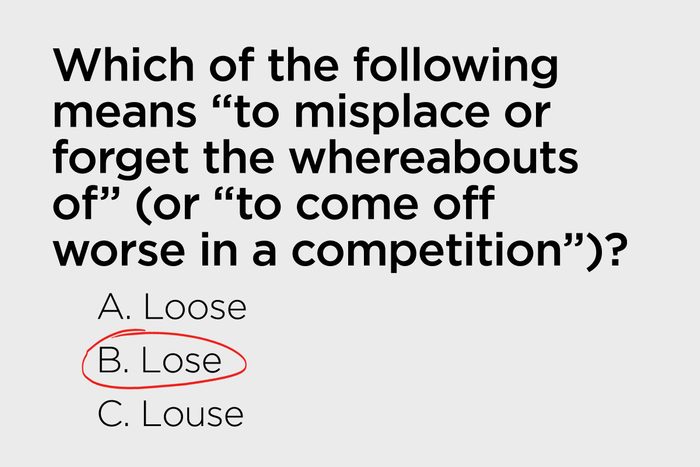
B. Lose
No, you can’t “loose” your keys. But if you set your dog “loose,” you might “lose” him.
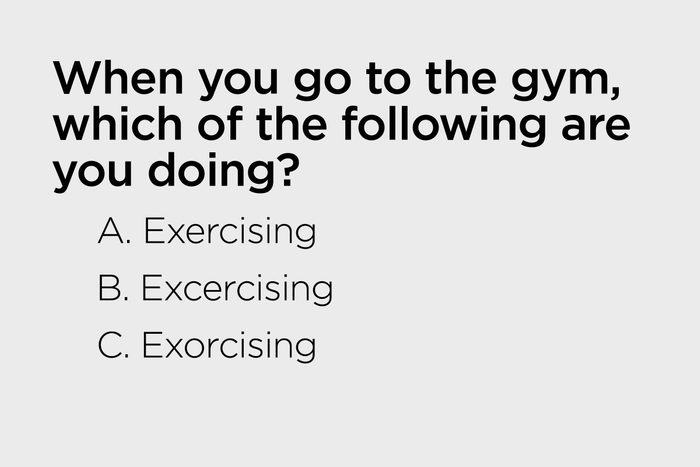
When you go to the gym, which of the following are you doing?
A. Exercising
B. Excercising
C. Exorcising
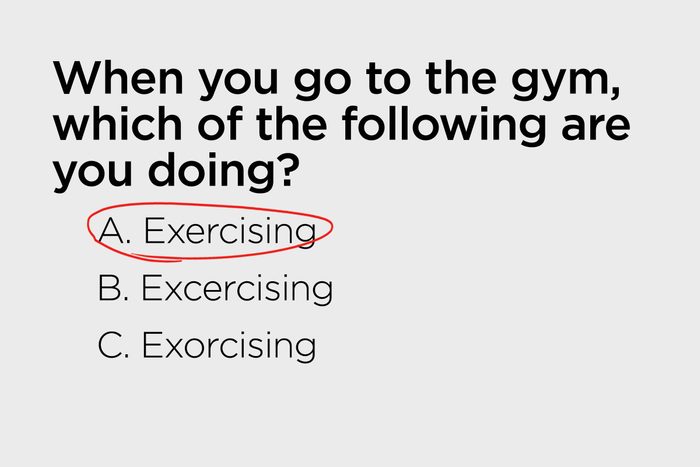
A. Exercising
Hopefully, you’re not encountering any demons at the gym, as that’s the only time you would use the homophone “exorcising.” Here are some more homophones people commonly mix up.
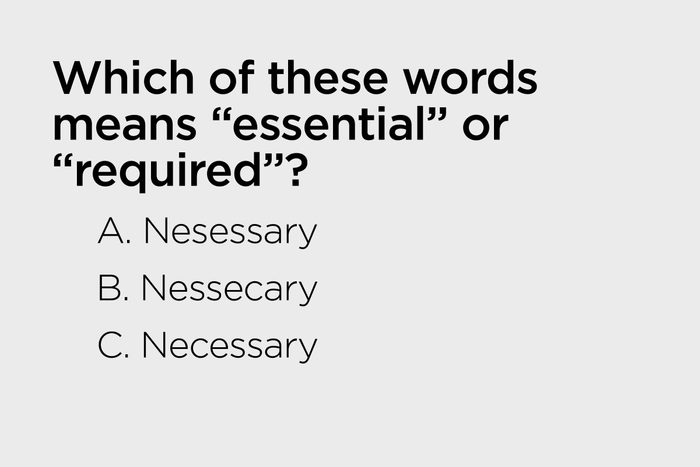
Which of these words means “essential” or “required”?
A. Nesessary
B. Nessecary
C. Necessary
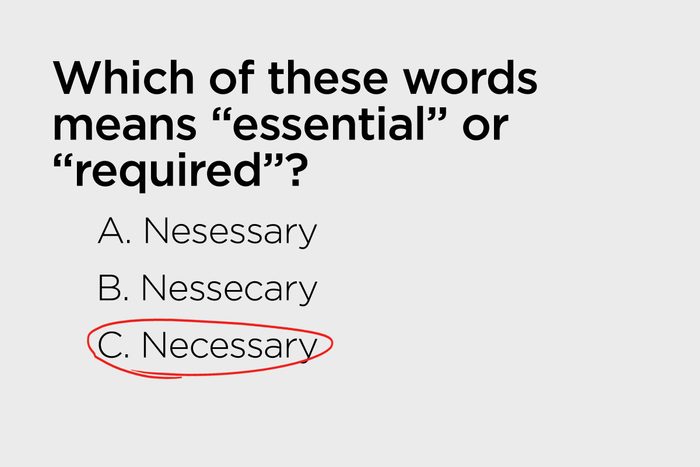
C. Necessary
C’s and double-S’s make the same sound in “necessary,” making it a tricky word to spell! Speaking of tricky—how many of these trick questions can you get right?
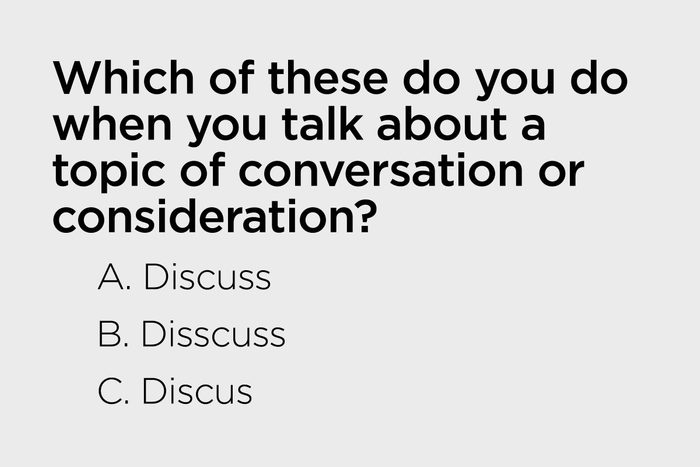
Which of these do you do when you talk about a topic of conversation or consideration?
A. Discuss
B. Disscuss
C. Discus
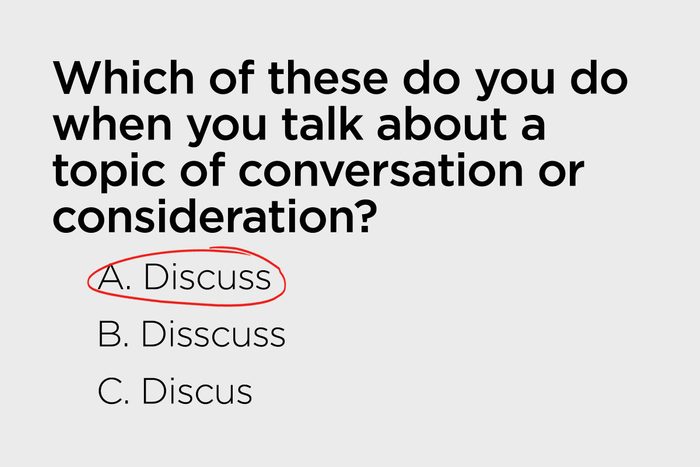
A. Discuss
If option C also looks familiar, that’s because “discus” is a disk-throwing track-and-field event.
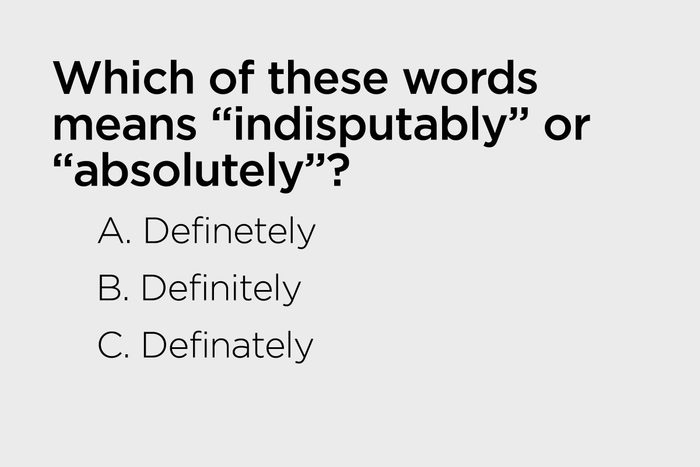
Which of these words means “indisputably” or “absolutely”?
A. Definetely
B. Definitely
C. Definately
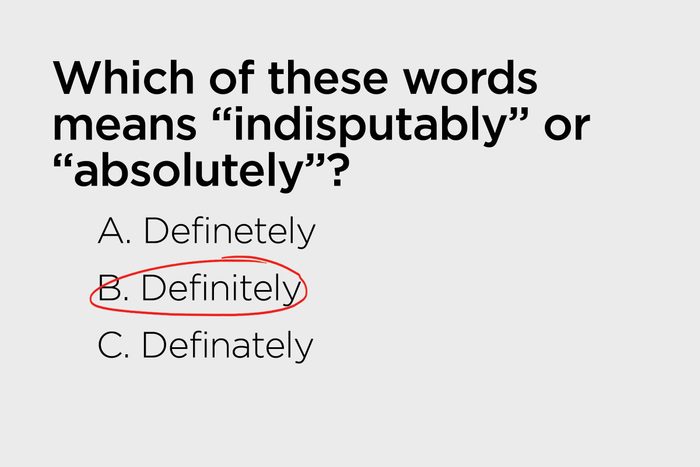
B. Definitely
As in, if you got more than 10 of these 4th grade spelling words correct, you’re definitely a master speller!
Officially feeling smarter than a fourth grader? See how you fare against these elementary school math questions.
Get Reader’s Digest’s Read Up newsletter for more humor, cleaning, travel, tech and fun facts all week long.




















